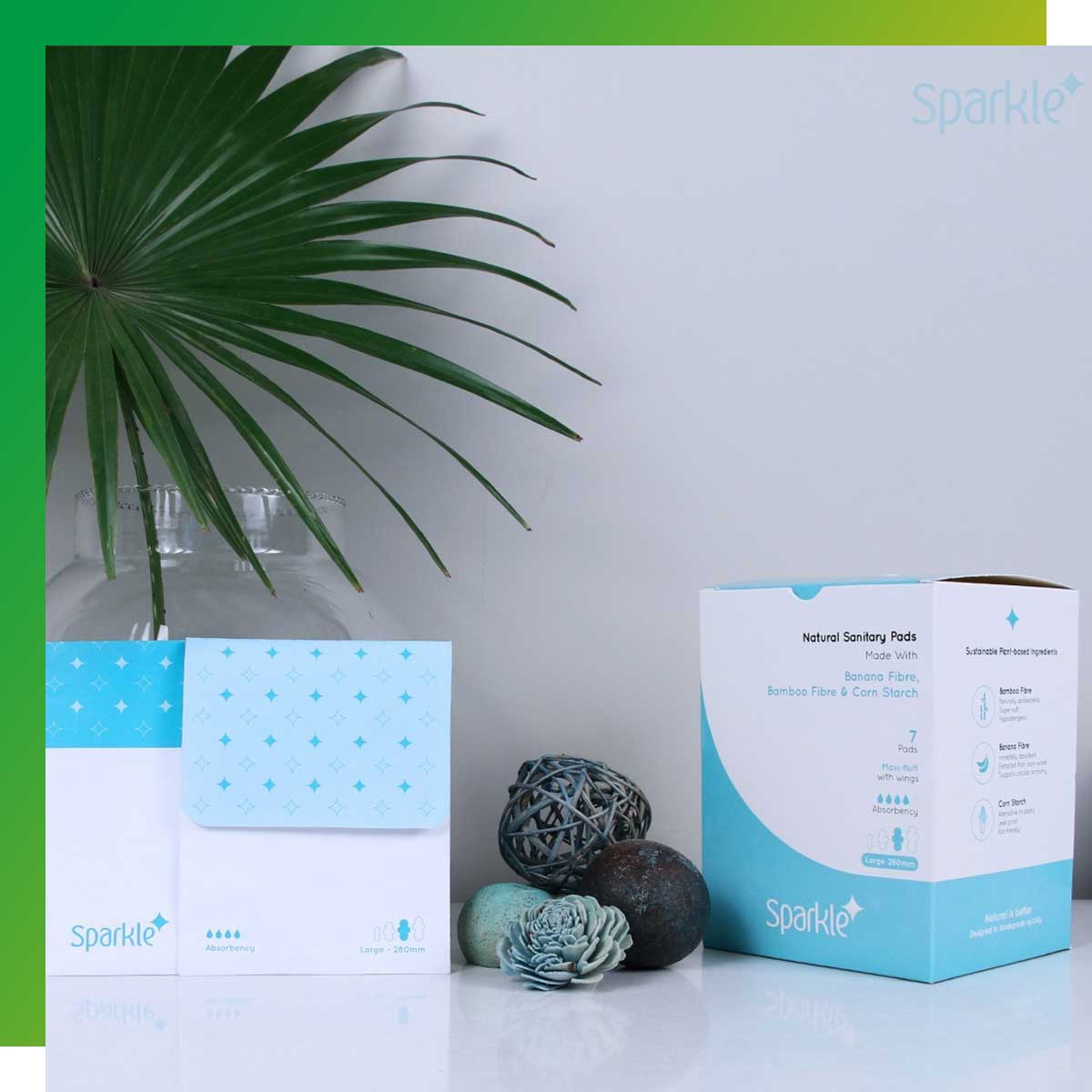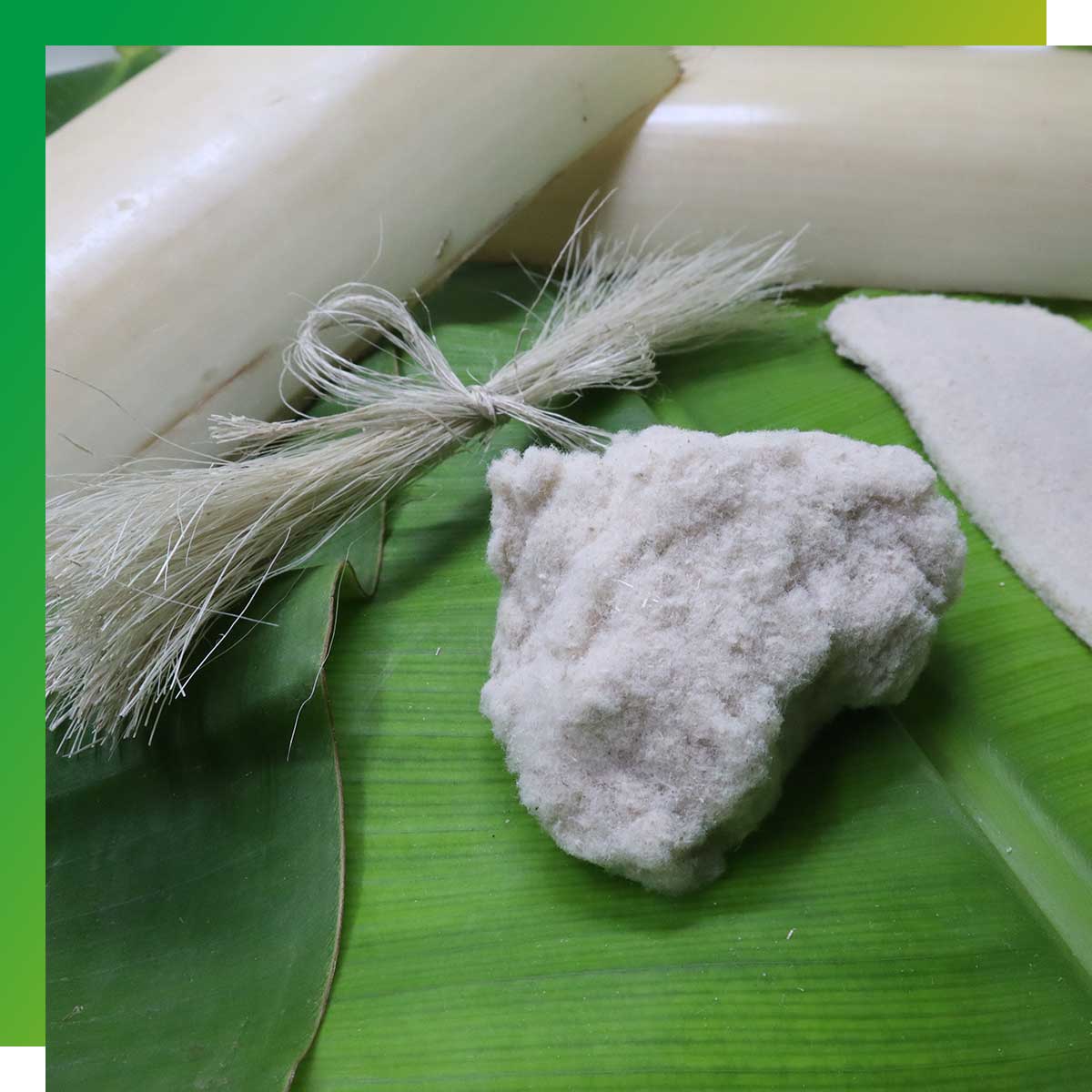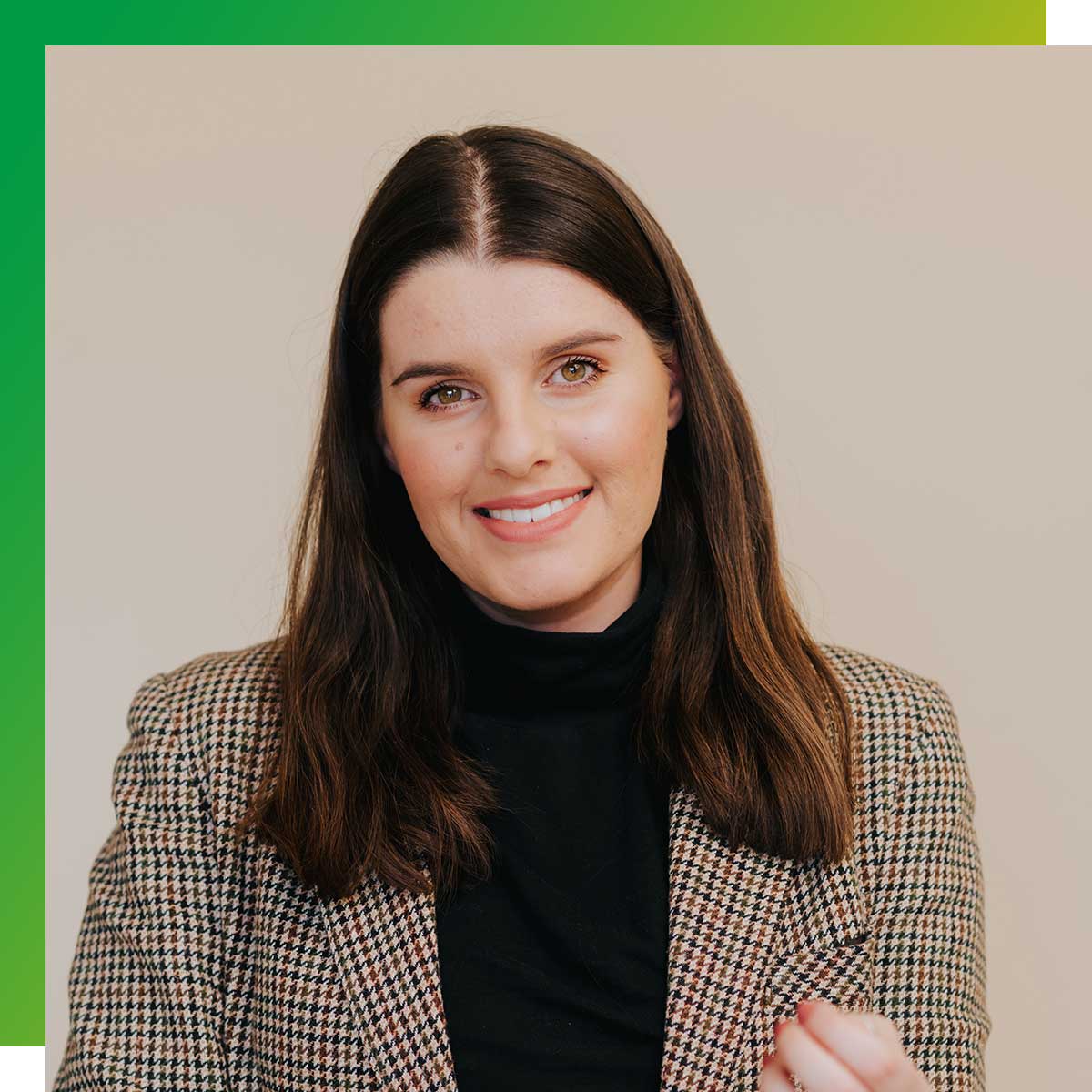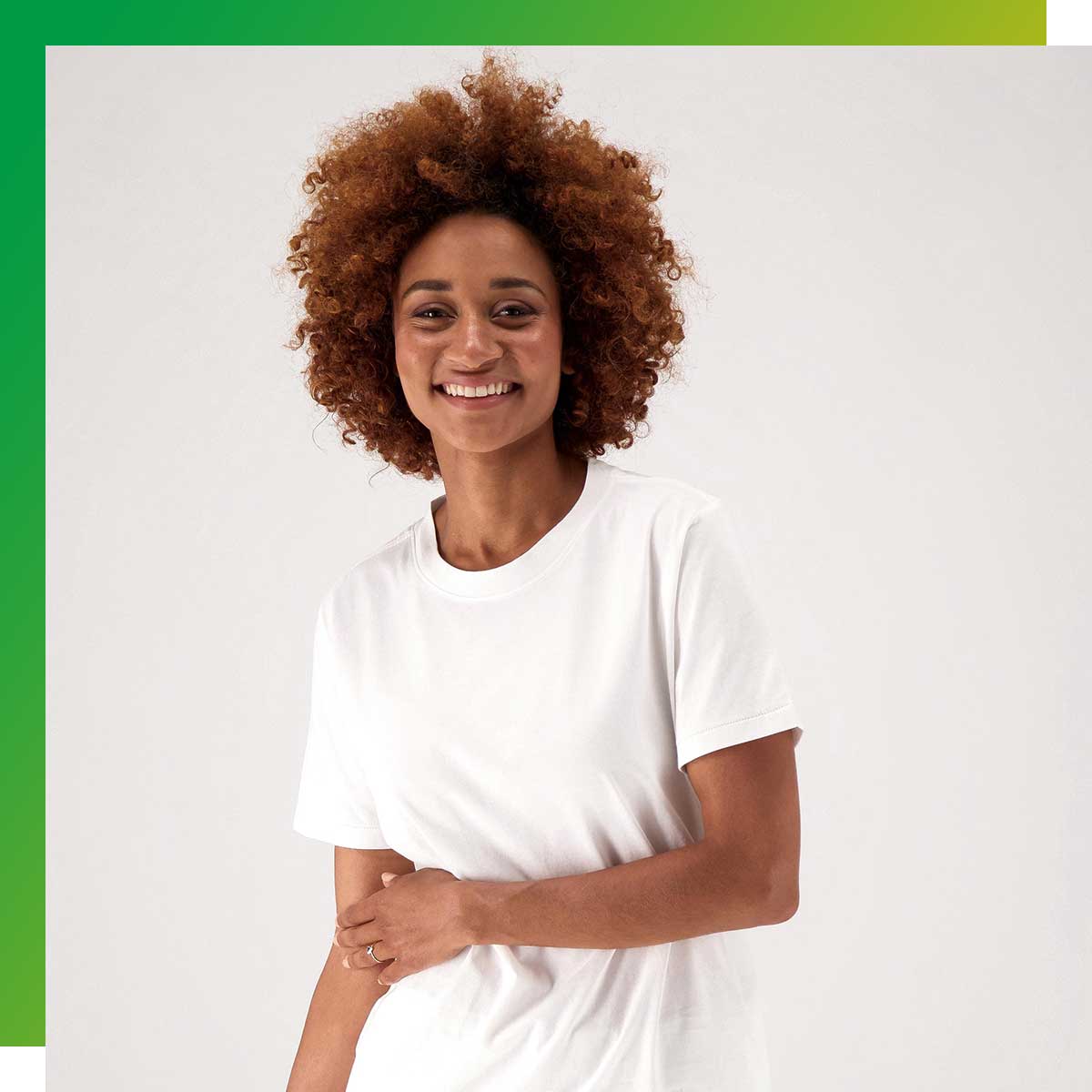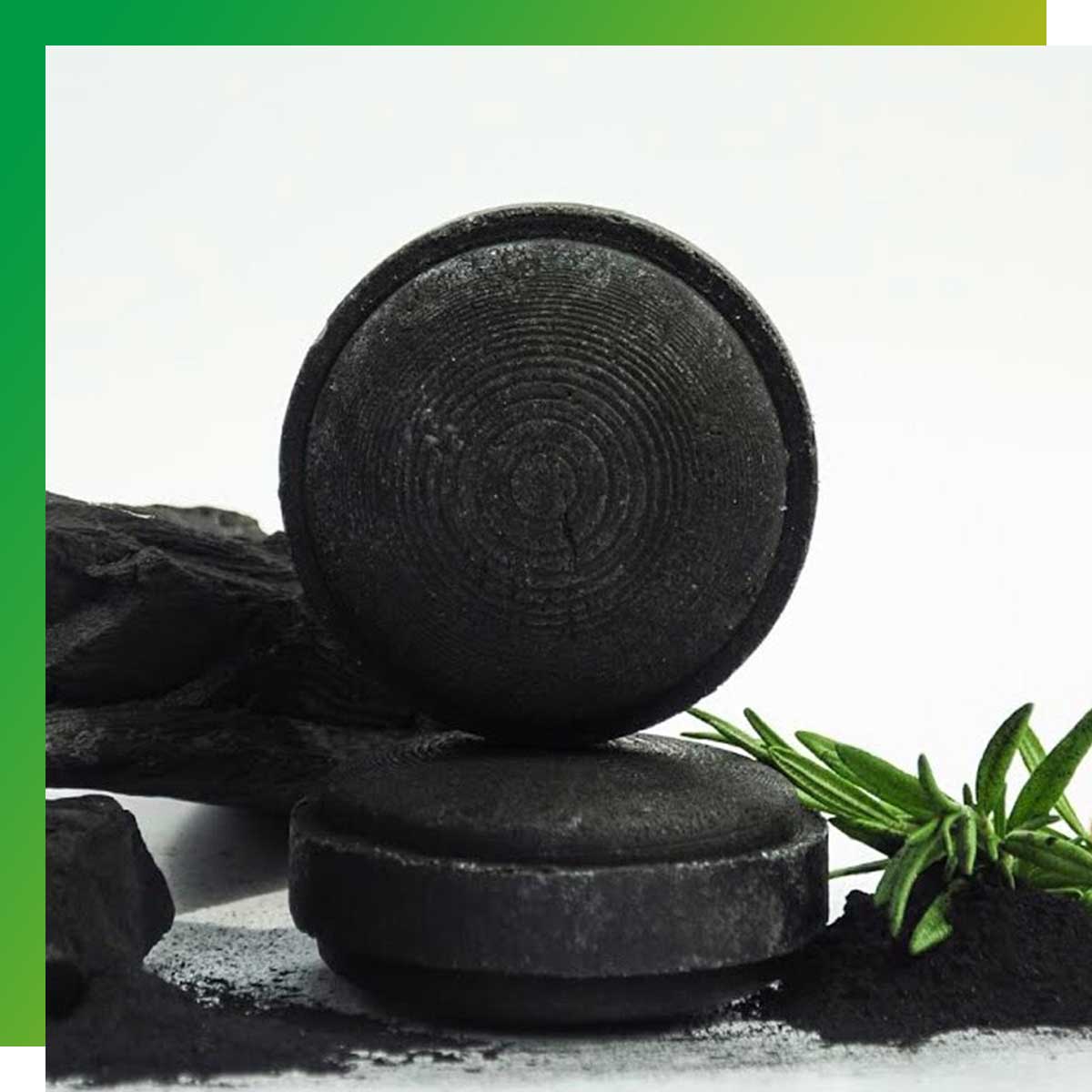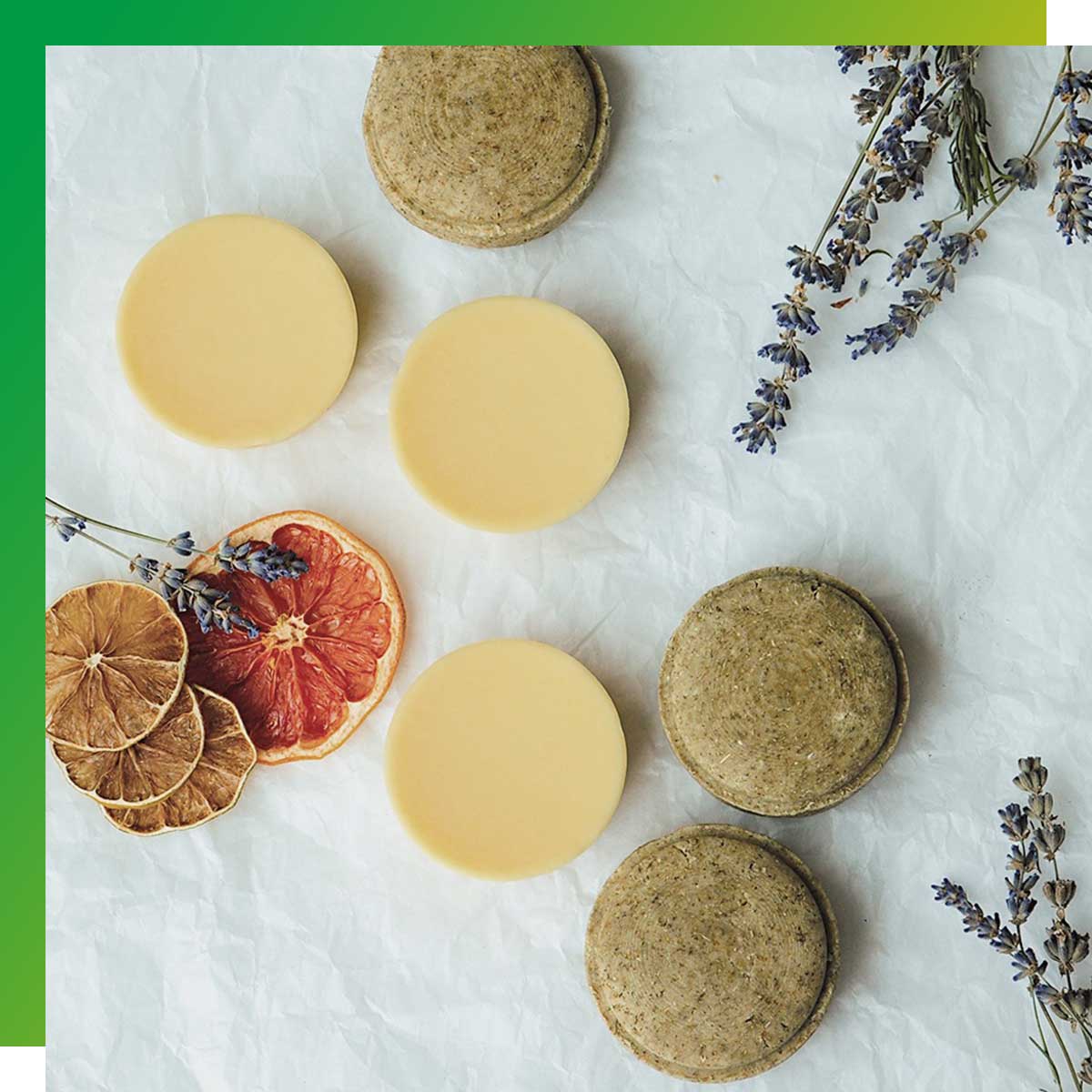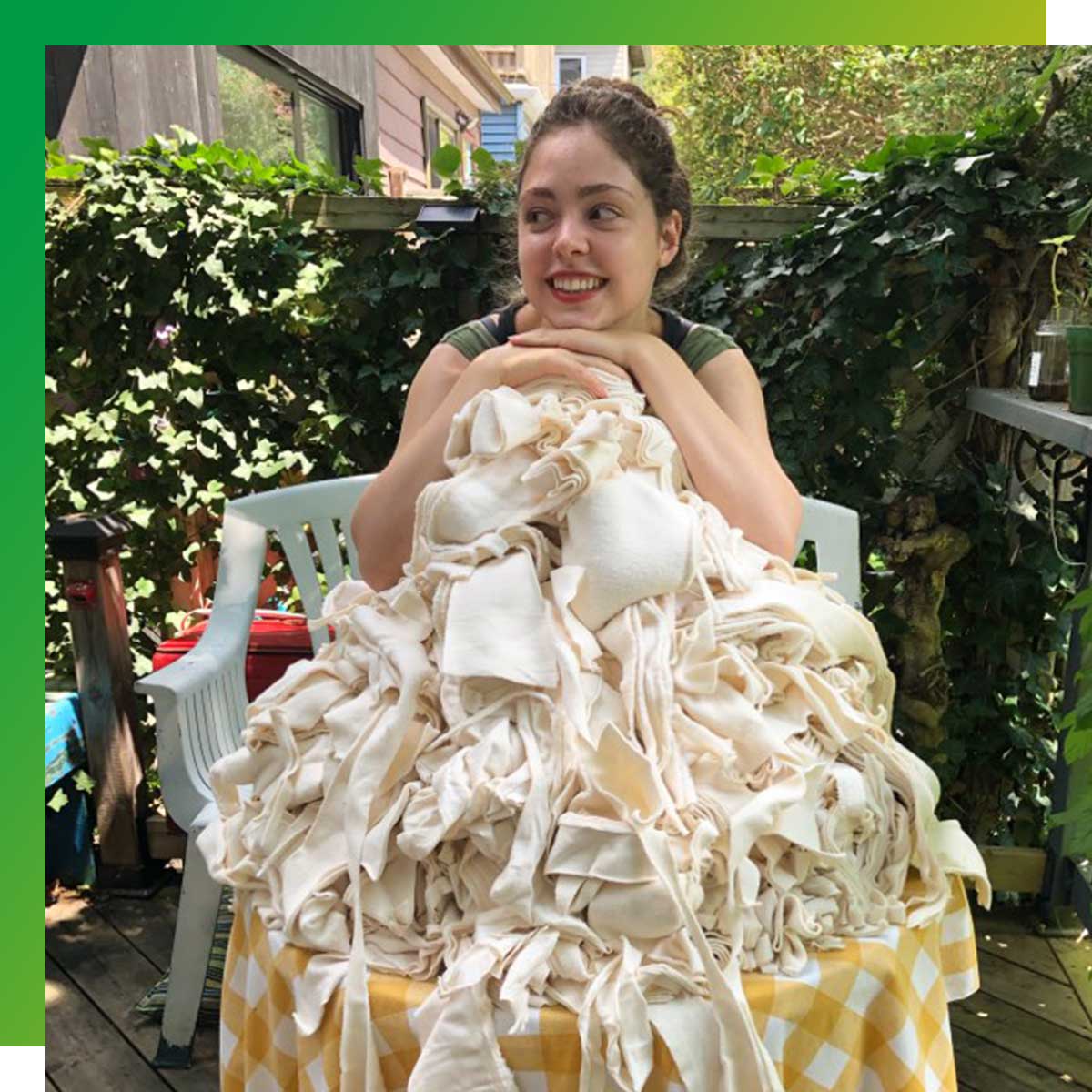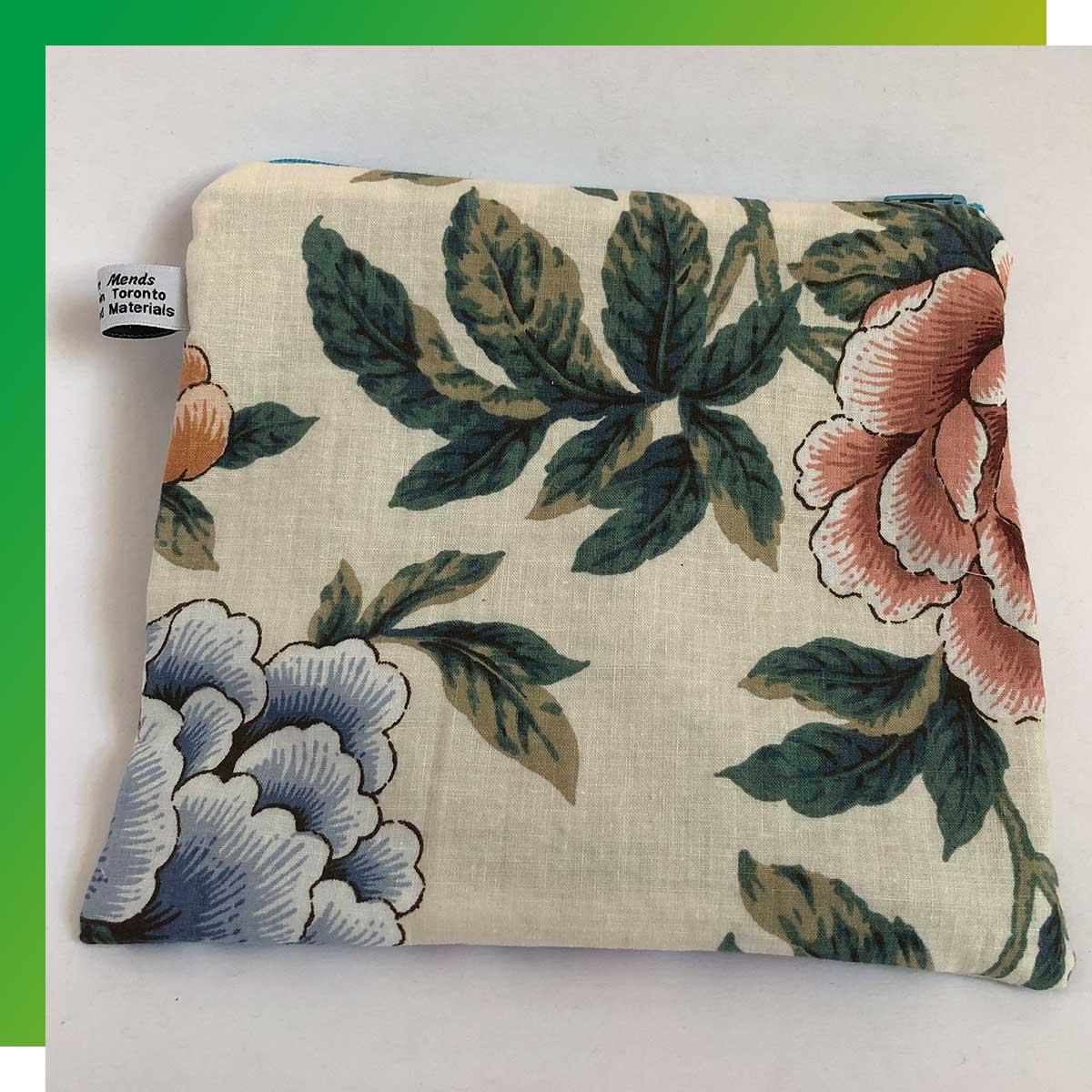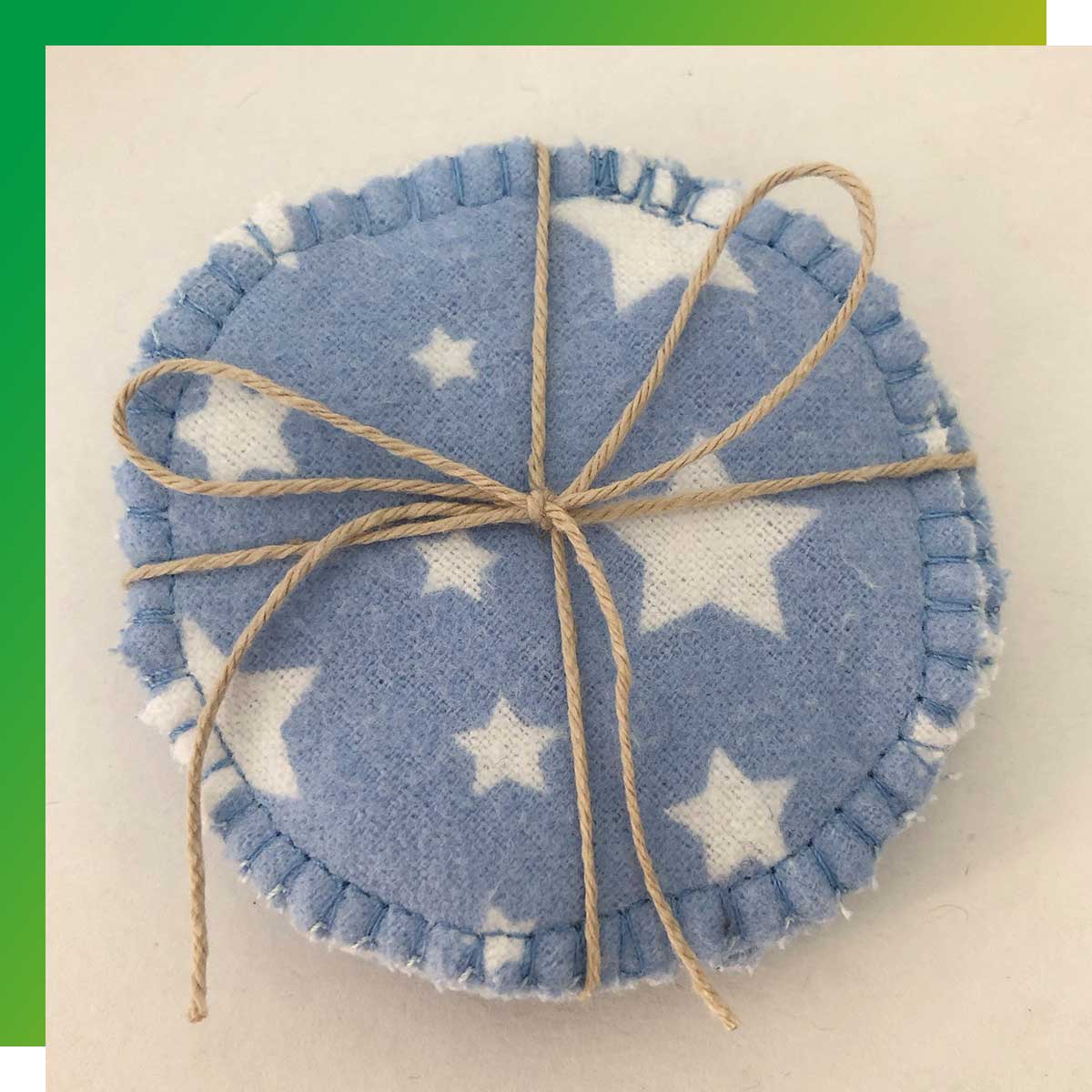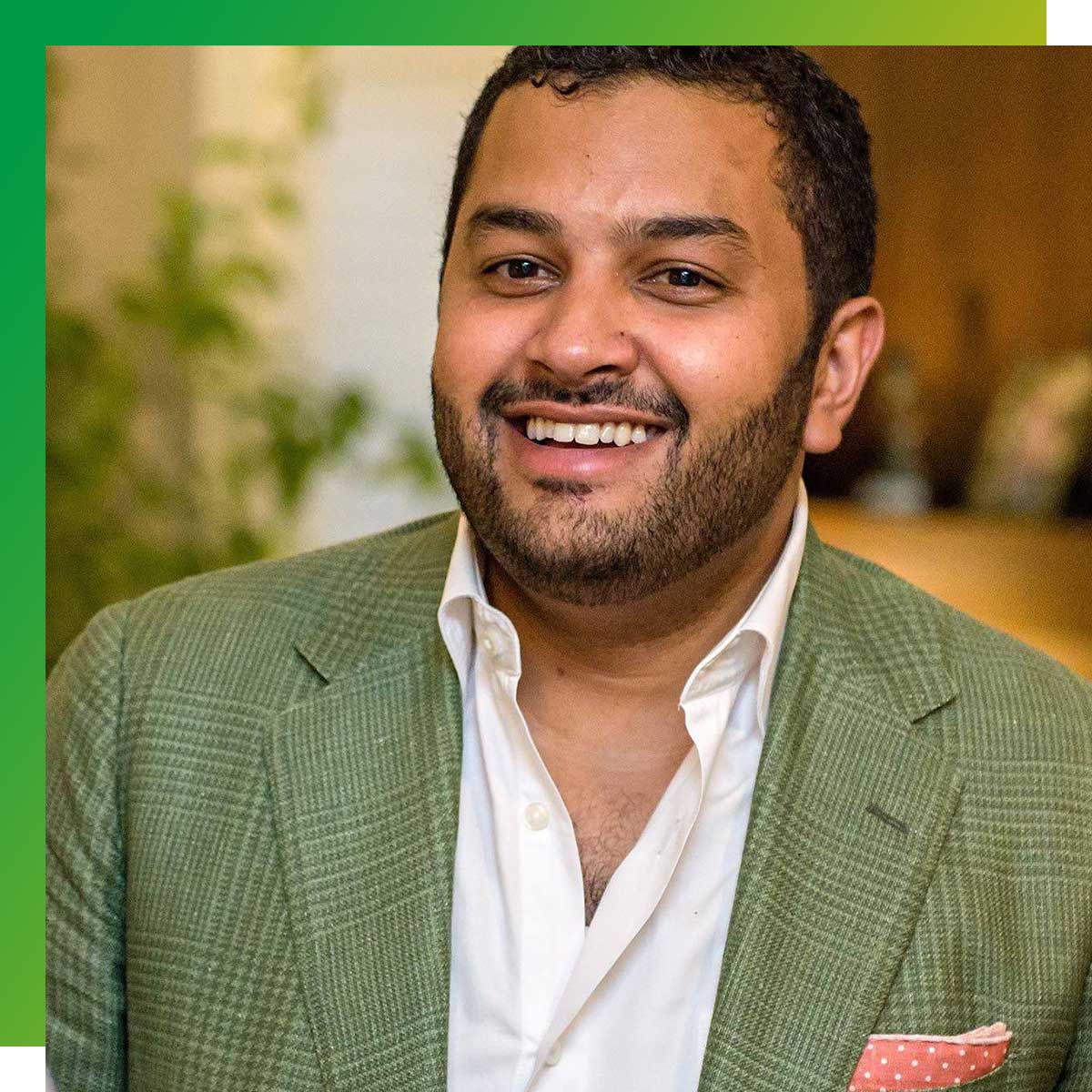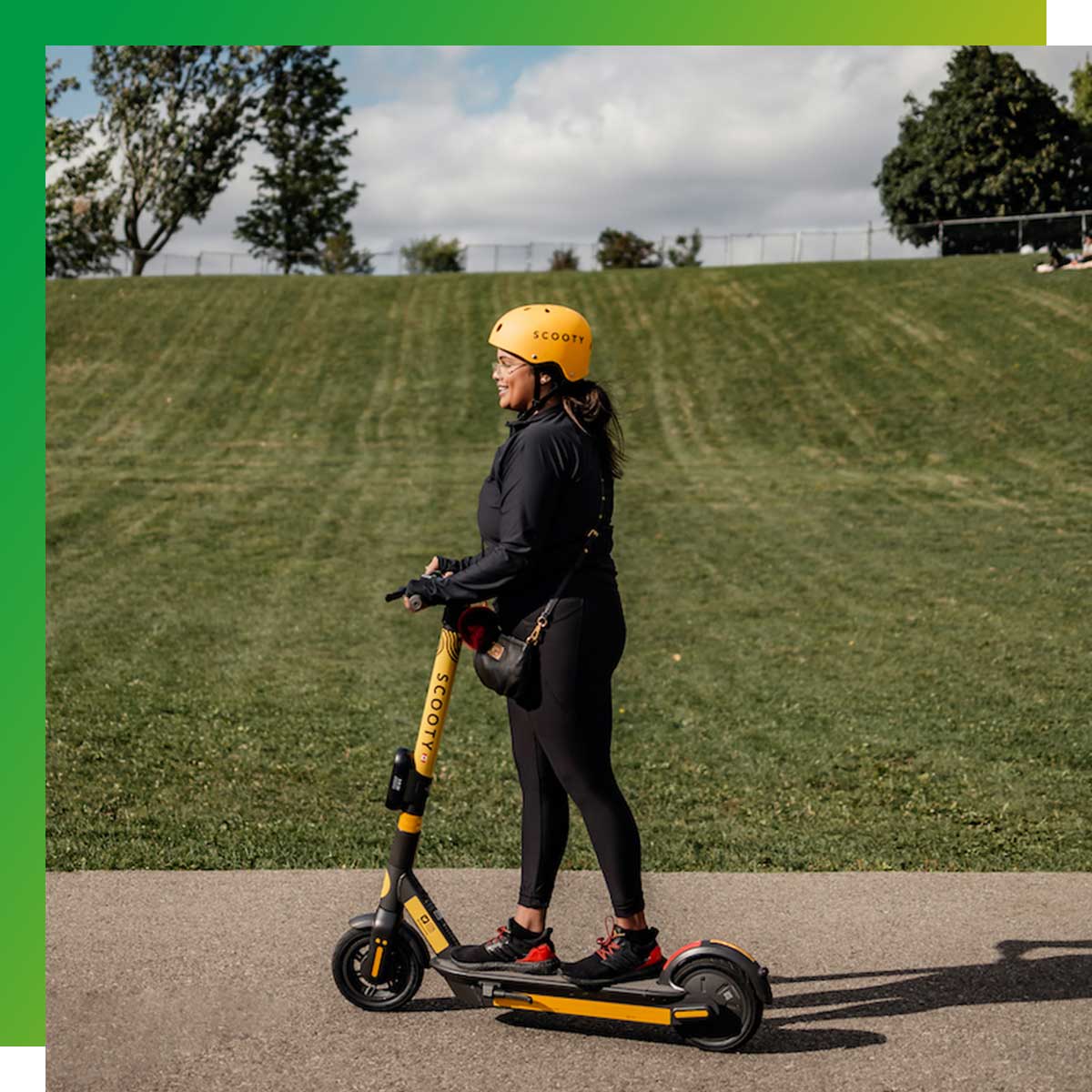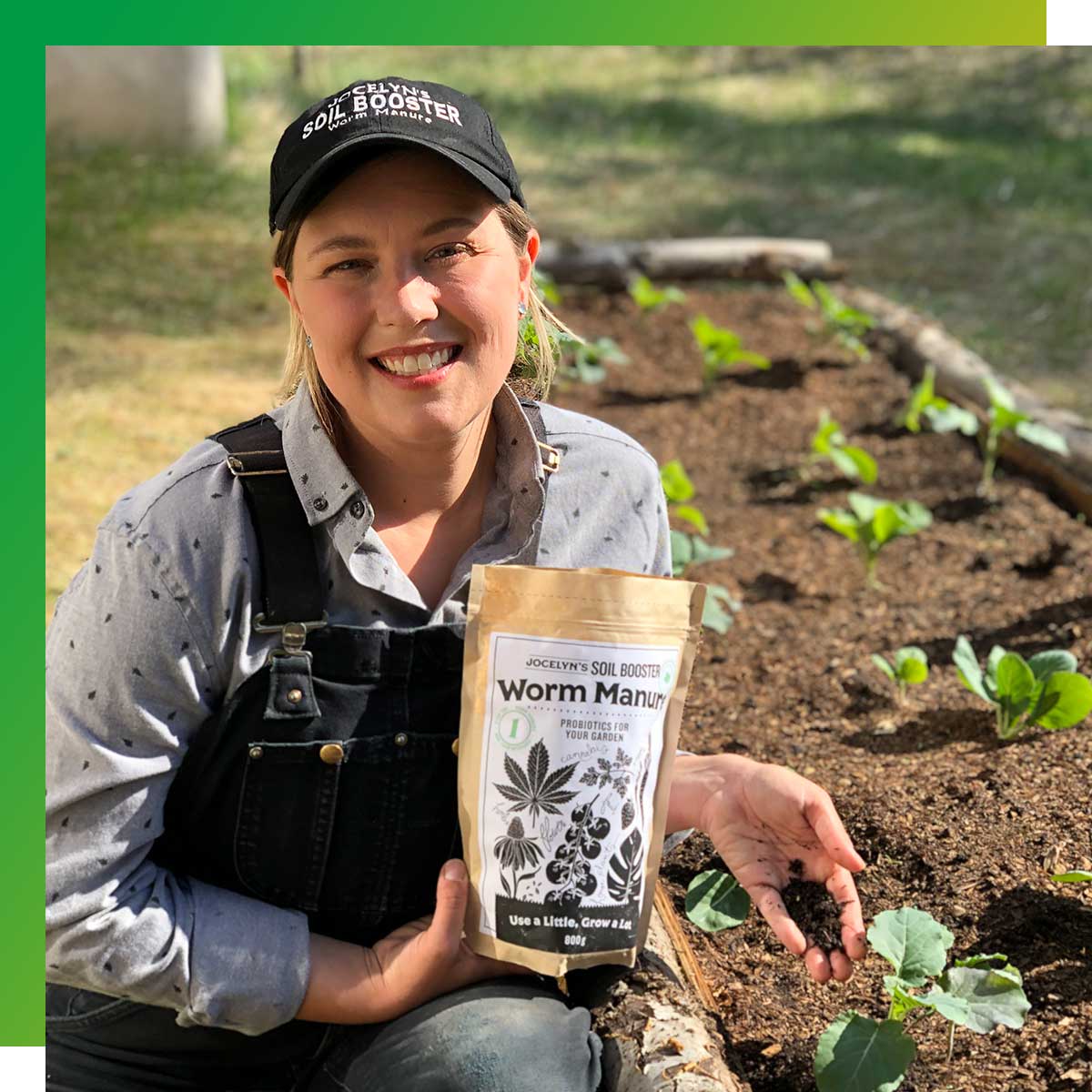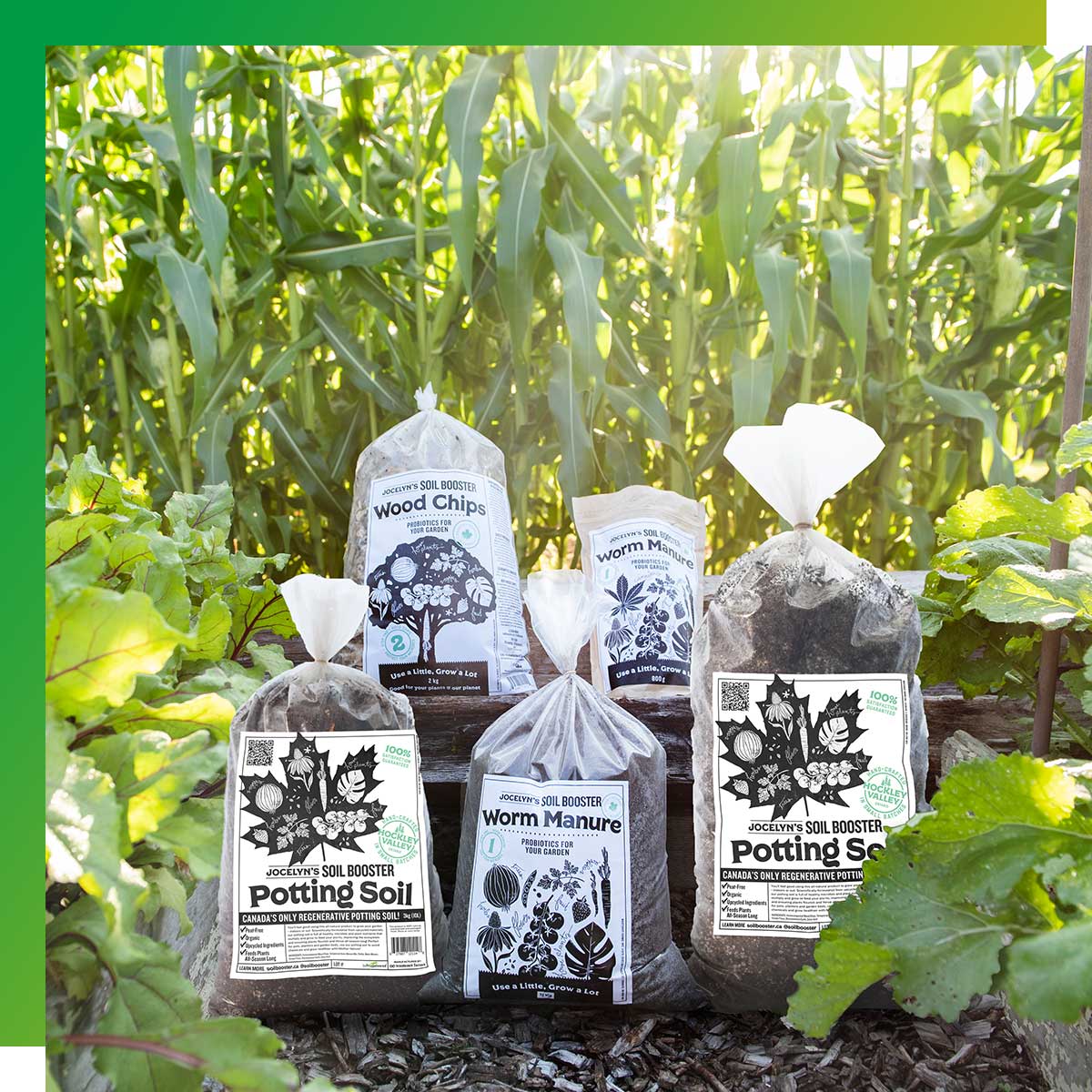Eco-friendly alumni: Selling a more sustainable future
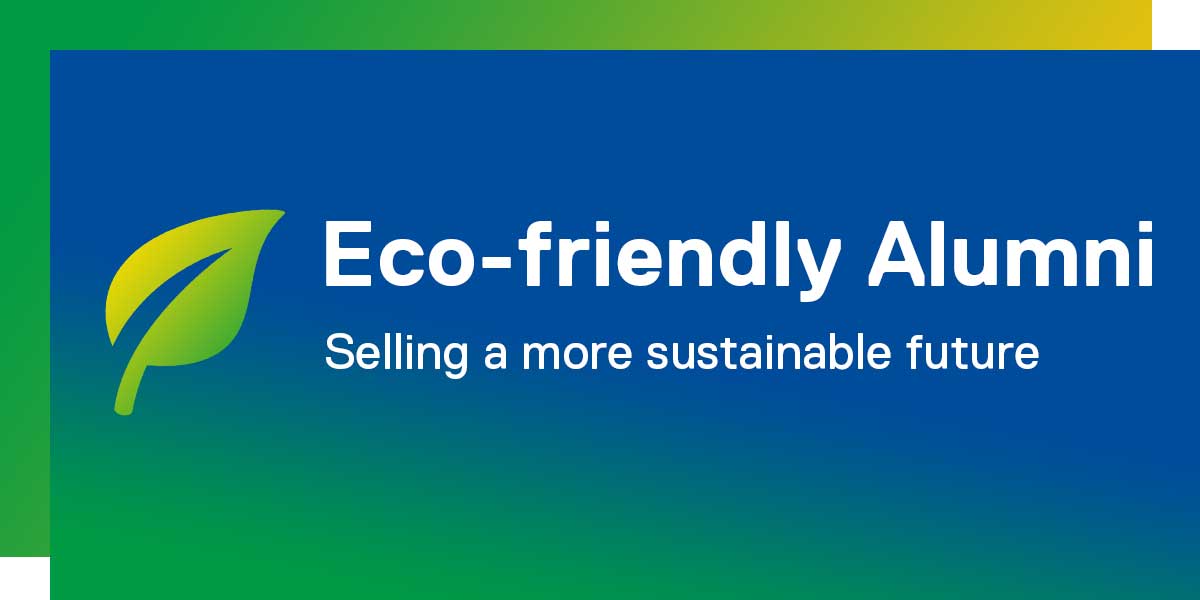
Since 1970, the world has come together in the month of April to celebrate Earth Day; a movement that provides a voice to our emerging environmental consciousness and a day of action to change human behavior and create global, national and local policy changes.
These alumni are demonstrating their dedication to a more sustainable and eco-friendly planet through the creation of businesses that make an impact both in Canada and abroad.
Chirag Virani
Business Administration MBA ’12
Sparkle Eco Innovations (external link)
Sparkle is the community-first brand reshaping the way people experience their periods by making sustainable, plastic-free and chemical-free sanitary pads accessible for everyone. Sparkle aims to reduce plastic pollution, promote gender equality and support a circular economy through the use of organic, bio-based or up-cycled materials derived from renewable resources.
What impact do you hope to have by creating and selling more sustainable and healthy sanitary products?
I am a feminist man who passionately advocates for gender equality. I firmly believe that lack of access to period products should not result in lack of access to equal opportunities.
Globally, it is estimated that 528 million women and girls lack basic menstrual hygiene supplies based on data collected from eight countries in Performance Monitoring for Action, 2020. Around 200 million women in India without access to sanitary pads use less hygienic alternatives such as old rags, cow patties, leafs or ash during their periods, risking infection.
Conventional sanitary pads contain around 3.5g of petrochemical plastic with every sanitary pad releasing around 21 grams of carbon dioxide in the process. Thousands of tons of sanitary pad waste remain unchanged in the landfill for over 600-800 years after disposal. With only 1 in 6 women using sanitary pads in India, around 150,000 tons of sanitary pad waste is generated every year. If all 350 million women in India start using sanitary pads, it would result in over 1,000,000 tons of sanitary pad waste per year.
We founded Sparkle to offer healthy, sustainable and innovative products made from highest quality ingredients that are gentle to your skin and kind to the planet. Unlike conventional pads that do not decompose for hundreds of years, Sparkle pads can biodegrade in around six-twelve months of disposal.
What are the biggest barriers faced by companies creating new and sustainable products?
In my opinion, making sustainable products more affordable and reaching the right customer segment are two of the biggest challenges for any new start-up that aims to offer sustainable products.
Typically, from manufacturing and supply chain point of view, sustainable products end up being relatively more expensive compared to their conventional alternatives since natural, bio-based, organic, biodegradable, compostable and/or sustainable ingredients/raw materials are more expensive, sometimes twice or three times more expensive compared to conventional petro-chemical based ingredients. Most often natural/sustainable ingredients are not mass produced or they don’t have an established supply chain like conventional products which makes the end product more expensive.
What ways can new start-ups address these challenges?
Product/raw material Innovation: Companies can explore new and innovative raw materials that are more affordable and establish a vertically integrated supply chain that can make procurement of raw materials efficient and more cost-effective.
Effectively communicating with consumers: Today’s health conscious and eco conscious consumers are willing to go the extra mile to make sustainable choices and to avoid products that contribute to plastic pollution. However, in addition to developing innovative and sustainable products, it is equally important to educate customers about how their choices are beneficial for the environment in the long run so they can make informed purchasing decisions. Once customers see your core values and recognize genuine efforts by your brand towards making the world a better place, they would proudly become your brand ambassadors and help you spread the word.
Rather than telling customers why they should buy sustainable products, we encourage them to ask themselves the following questions before making their purchasing decisions:
- Is the material used to make your products relatively in its natural form, or has it been synthesized in a lab from combinations of elements that do not exist in nature?
- How long does it take for the material to actually break down?
- Are there any contaminants or toxic substances left behind during the degradation process?
How does Earth and the environment inspire your work?
Coming from a family of farmers I have always felt very connected to nature. In fact, the journey of Sparkle started at our banana farm where the banana-stem agro-waste was not utilized properly.
Banana plants grow rapidly in just 9-12 months and once bananas are harvested, these plants become agro-waste. Disposing thousands of tons of agro-waste is a hassle for banana farmers. After each harvest, farmers either burn these discarded stems, which causes air pollution or they have to pay additional labor expenses to remove them from their farms.
We started developing innovative ways to transform banana stem agro-waste into sustainable raw material for making new products. We realized that banana fibers are naturally super absorbent and highly effective at locking away menstrual fluid. With banana fiber becoming sustainable raw material for Sparkle sanitary pads, farmers can get an opportunity to earn extra income during each harvest while supporting the circular economy.
Besides banana fiber, we are exploring a number of other natural fibers, bioplastics and biopolymers to make Sparkle pads even more sustainable.
We aim to focus on the entire product life cycle which includes choosing sustainable raw materials to make our products as well as their responsible disposal so that the products we use only for a few hours do not pollute the planet for hundreds of years.
Jaclyn Patterson
Program: Fashion Design ’15
Shopwise (external link)
Jaclyn Patterson is on a mission to build a better fashion future. In 2014 she began her work as a personal wardrobe stylist, helping people develop their magnetic personal style while consciously building wardrobes they love. Alongside her work, Jaclyn has been a long-time advocate for slow and sustainable fashion, sparking her passion to create Shopwise, a sustainable fashion marketplace in 2020, making it easier for people to vote with their dollar from brands that prioritize both people and planet.
What impact do you hope to have by promoting/selling sustainable and ethically produced products?
With the continuous rise of climate change, and the fashion industry alone being responsible for approximately 10% of global carbon emissions, we all have a responsibility as consumers or business owners to think about how our actions create impact. Each day we have an opportunity to vote with our dollar. While at Shopwise we offer a sustainable fashion marketplace to make it easy for people to shop from pre-vetted brands they can trust, we are also passionate about educating and inspiring others on why sustainability matters and how collectively we can change the future of fashion together... beyond just voting with your dollar.
In what ways can individuals make more sustainable fashion choices?
Embracing a more sustainable wardrobe really comes down to shopping with intention and asking why before you buy. We're conditioned to buy and often think the best way to a more sustainable wardrobe is to buy from more sustainable brands. And while that is most definitely more effective than shopping fast fashion, it's important to recognize the most sustainable thing you can do is use what is already in your closet. This is why through my styling work, I'm so focused on helping people from all over create outfits they love from their existing closets. You don't have to sacrifice style while supporting sustainable fashion.
How does protecting Earth and the environment inspire your work?
We're surrounded by beautiful climates and landscapes worldwide that we have such a privilege to experience in our lifetime. I think about my future and the future of generations beyond myself, and wonder what is next for them? I envision a world where we live more in harmony and with respect for both the planet and people worldwide. Every decision made through Shopwise and my styling work prioritizes the planet and allows us to think about how we can do better, what we can learn, and how we can share this with others.
Maria Portillo
Business Management — Global Management ’21
Somi (external link)
Somi is a sustainable personal care brand with a mission to reduce the use of single use plastics and help prevent plastic from entering our oceans and landfills. With our plant based formulas, we strive to connect people back to nature and the environment. All of our products are handmade, vegan, palm oil free and cruelty free. We launched with a collection of shampoo, conditioner and body soap bars and are working towards expanding that in the future. Our ultimate goal is to help others redefine their personal care routines for their bodies and the planet.
What impact do you hope to have by creating environmentally-friendly products?
The impact I hope to have is to lower the consumption, production and use of single use plastics. The cosmetics industry produces billions of plastic bottles and jars each year and a majority of it is not recyclable. This plastic problem in the beauty industry is why we prioritize having sustainable and eco-friendly packaging. Our current collection was created to provide solid and zero waste products for all. It’s genderless, natural, kind to the environment and our bodies. My hope is to have Somi be used as a way to further spread awareness about our world’s plastic problem.
How does Earth and the environment inspire you and your work?
The earth and environment inspires me everyday. In a world of constant stress and being constantly connected to screens and our phones, nature inspires me to slow down and take in my surroundings. It helps me feel grounded and live more in the present. I feel a sense of peace with the thought of nature and all its beautiful qualities, allowing me to realize how truly remarkable the world we live in is. This is why I'm so passionate about our brand and what we stand for. Nature and the earth not only inspire how I create my products, but also how I live my life.
What other sustainable brands do you love?
Other sustainable brands I love are Joni, they are a Canadian small business focused on producing eco-friendly menstrual products. They use organic, sustainable and biodegradable bamboo. I really admire that they are providing an alternative for traditional pads and tampons you find at the grocery store as well as offering another good option for people who do not like using menstrual cups. Another brand I love is Flush Bamboo. They are also a small Canadian brand and focus on providing eco-friendly toilet paper. Their toilet paper is produced using bamboo and it lasts longer than traditional toilet paper. A third brand I'm super into is Kotn. Kotn is a Canadian brand that produces ethically made clothing from Egypt and Portugal. Their clothes are very high quality, minimalistic and great if you're looking for basics. Overall, these are some of my favorite Canadian eco-friendly and sustainable businesses that not only are helping people but also the planet!
Helen Frank
Arts and Contemporary Studies ’18
Helen Mends (external link)
After graduating from Ryerson University’s (now named Toronto Metropolitan University) Arts and Contemporary Studies program in 2017, Helen started sewing at farmers markets in Toronto. Helen Mends repairs textiles and makes replacements for disposable items from upcycled materials. Since 2018 she has kept more than 3500 items out of landfill. Helen Mends makes products like makeup wipes, tote bags, menstrual pads, hankies, and more, all using discarded materials. Helen worked for Ryerson University in 2020, making practice placentas for the midwifery program from recycled materials. During the Covid19 Pandemic, Helen and her mother, Cookie, pivoted to making masks. Helen works with the ROSE project trying to make a reusable, hospital grade mask. Helen is now living and working in Montreal.
What impact do you hope to have through your mending and upcycling business?
I want my business to make people view textiles as valuable. Not just because of their monetary cost but because of their environmental cost and longevity. Textiles take a lot of resources to create and we should celebrate and hang onto every piece that has already been made before creating more. Not to mention that discarded textiles make up a huge percentage of what is in landfill. Some of these textiles are plastic based and will be in landfill much longer than any of us will be alive. I try to achieve this by upcycling beautiful fabrics into new things, by repairing clothes and household textiles, and by teaching people how to do their own basic repairs.
What kinds of items are easy to fix that people are most apt to throw away?
Seam tears. People often bring me items with large holes thinking they are beyond repair when actually, just the thread holding two pieces of material together has ripped. All you need is a straight line of stitching and you’re back in business! Just take a look and ask yourself, is the material torn, or the thread? Most problems are easy to solve if you catch them early. I’m happy to give advice on small mends to anyone who reaches out. I also have workshops that I teach online about basic mending. Anyone who wants to learn how to fix a few common problems can find my upcoming workshops on my website.
How does protecting Earth and the environment inspire your work?
My work is completely inspired by my love for the environment. The average garment is only worn 11 times before it is discarded. The average Canadian discards 81 lbs of textiles every year. The fast fashion industry is the second most environmentally harmful in the world. By holding onto our things for a little longer we can reduce a lot of waste over our lives. The idea of “throwing things away” is a myth. Our garbage is taken away from us but it’s never really gone. I use my business to divert all sorts of textiles from landfill. By making replacements for disposable items I also keep plastic out of landfill in the form of produce bags, menstrual pads, sandwich bags, and other single use items.
Shoaib Ahmed
Business Management ’11, MBA Business Administration ’16
SCOOTY (external link)
SCOOTY is a Canadian micromobility company that is helping people make their short distance commute, 100% emissions-free. Scooty provides neighbourhoods with shared electric mobility solutions like e-scooters and e-sikes so residents and commuters have quick, convenient, and affordable access for local travel and connecting to local transit.
What impact do you hope to have by encouraging/selling more sustainable and eco-friendly transit options?
The most impactful change we can make to our cities is reducing the number of short car trips. Micromobility, which is the usage of light electric personal vehicles, such as e-scooters, ebikes, e-mopeds — fit really well into the 1 – 5 km trip range which makes it ideal for short trips. Fewer cars making local trips is good for the environment, helps with climate change, reduces congestion, and is overall very convenient and fast.
What are the biggest barriers you've faced in bringing Ride Scooty to market?
Shared Micromobility is a fairly new concept in Canada. When we started SCOOTY in 2019, there was very little understanding of the regulatory space in micromobility. This concept was blowing up all over the US and Europe and we wanted to bring it here. Through our advocacy, we were lucky to be included in the consultation process by the Province on micromobility regulations in Ontario. We started educating Cities on the benefits of micromobility and then Covid-19 froze everything. We were at a complete stop as every city was focusing on Public Health. We then pivoted to hosting virtual meetings and were able to launch a successful pilot in the City of Brampton - in the midst of a covid crisis. The people loved it, approximate 1000 rides were taken in a matter of days. We took the data from this pilot and then shared that with other cities. Our Safety - Courtesy - Partnership approach resonated with many stakeholders and we are now on track to launch some major partnerships this year.
Lesson learned — there is always a way. Be patient and pivot as needed. Do not stop.
What are the benefits of micro-mobility transit options?
Simply put, micromobility is faster, cheaper (think gas prices!), and environmentally friendly — compared to other modes of transport. It is also convenient — you don't need to wait for anyone. Through the app, locate the closest vehicle, unlock and ride. It is also super intuitive. When we launched our pilot, our youngest rider was 16 and the eldest was 77 years of age. They were riding comfortably in just minutes. Our micromobility vehicles are fully electric ranging from 65 km to over 100 km. What a great way to replace short distance commutes with small electric vehicles!
How does Earth and protecting the environment inspire your work?
Climate change is real and we are witnessing its effects on a daily basis. We all need to play a part in making small changes to choices that affect the environment. Just like food, water, shelter, and health - transportation is also a necessity. But unfortunately, transportation is also one of the biggest emitters of GHG.
We created SCOOTY out of the need to move short distances using electric micromobility, quickly and seamlessly. Every short journey we make can replace a car trip. Multiply that with thousands of rides over a short period of time, imagine the GHG reduction that can happen, while having fun commuting. I’d say that's a win-win!
Jocelyn Molyneux
Master of Applied Environmental Science and Management ’12
Wastenot Farms (external link)
Wastenot Farms Inc. is a regenerative agriculture company that has been transforming organic waste into natural soil additives since 2013. Their mission is to keep organic waste out of landfill, instead transforming it into products that benefit plants, people and our planet. Collected food waste is fed to about a million worms (and growing) on a farm near Orangeville, Ontario, to create Jocelyn’s Soil Booster Raw & Regenerative Potting Soil.
What inspired you to start Wastenot Farms?
The idea for Wastenot Farms began when I worked at a big waste management company and learned that the food waste they collected was sent to landfill, instead of composting, because landfill was cheaper. I knew worms could transform organic waste into soil and I was determined to see this worm technology, known as vermicomposting, applied at a commercial scale.
What are some challenges you’ve faced throughout your business journey?
Our biggest challenge was when COVID hit, we had to pivot our business model from a B2B food waste collection model (that serviced 50 offices in the downtown core) to a B2C product manufacturing business focused on creating premium consumer home & garden products. This meant adjusting to the challenges associated with highly seasonal cash flow, anticipating supply and demand, and large capital cost requirements.
What impact do you hope your company will have on the environment?
We hope to serve as an example of a successful triple-bottom line company that scales to have a national presence, addressing the ~50% of food in Canada that goes to waste. We are empowering as many Canadians as possible to understand that regenerative growing is the “soil solution” that can simultaneously tackle issues of food waste, climate change and food security. Together we can grow healthy plants, healthy people and a healthy planet!
If readers are inspired to support our work, they can use the discount code RYERSON at checkout at soilbooster.ca (external link) to save 10% on their purchase!

